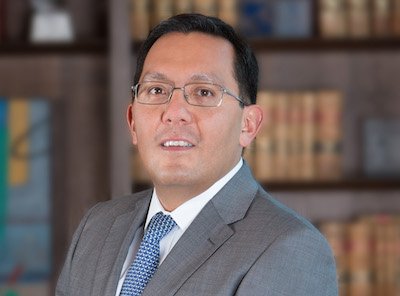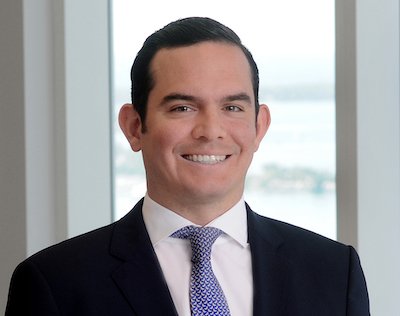Mapping the territory

As Latin America grapples with the effects of COVID-19 and companies seek to divest assets in connection with their reorganisation plans, a key question is whether local bankruptcy laws allow for the divestiture of such assets, according to a team of lawyers at Jones Day
 By Enrique J. Martin (Miami), Dan Moss (Washington), Wade Angus (São Paulo), José Antonio Vázquez (Mexico City), Luis A. Vélez (Miami) and Arturo de la Parra (Mexico City)
By Enrique J. Martin (Miami), Dan Moss (Washington), Wade Angus (São Paulo), José Antonio Vázquez (Mexico City), Luis A. Vélez (Miami) and Arturo de la Parra (Mexico City)
Under the US Bankruptcy Code, ailing companies may divest assets either through relatively quick Section 363 sales or through a Plan of Reorganisation, both of which entail a transparent, court-supervised, sale process that is designed to achieve the highest and best value for the assets that are delivered to the buyer, free and clear of all claims and interests, such as no successor liability. To navigate the complexities of divestitures through bankruptcy proceedings, we have prepared a brief summary of the legal framework for bankruptcy sales in Brazil, Colombia and Mexico.
BRAZIL
Brazilian bankruptcy law allows debtors in a court-supervised judicial recovery process to sell a division or assets of business divisions (known in Brazil as UPIs) free and clear of all liabilities, including liabilities arising out of tax and labour claims. Although the sale of a division or assets can be part of a debtor’s judicial recovery plan, Brazilian bankruptcy law does not expressly provide for the sale of the entire business or substantially all of its assets. A UPI transaction is supervised by the Brazilian bankruptcy court and must be completed through an auction process – either with live bidding or the delivery of sealed proposals. The division or assets are sold to the highest bidder, even if the highest bid is lower than the appraisal value. Notice of a UPI sale must be published in a widely circulated newspaper prior to the auction date.
 The debtor, creditors or the Public Attorney’s Office have a limited window to challenge a UPI sale. The bankruptcy court will rule on any challenge within five days and if the challenge is dismissed the assets then transfer to the buyer.
The debtor, creditors or the Public Attorney’s Office have a limited window to challenge a UPI sale. The bankruptcy court will rule on any challenge within five days and if the challenge is dismissed the assets then transfer to the buyer.
COLOMBIA
Colombia’s insolvency statute provides for reorganisation or mandatory liquidation. However, Colombian bankruptcy law does not expressly allow debtors in reorganisation proceedings to sell their core assets free and clear of liabilities. In response to the COVID-19 pandemic, a debtor may sell its non-core assets as part of the reorganisation process, and use the proceeds to pay its debt without court approval. Even though it is uncommon and is not expressly provided for in the law, a sale of core assets during reorganisation would require the approval of a majority of the participating creditors and confirmation by the court. If a debtor enters mandatory liquidation, the debtor must proceed with an auction (usually piecemeal), and agreements with stalking horse bidders are prohibited.
Given Colombia’s restrictive reorganisation laws, distressed asset deals are not common.
MEXICO
 Mexican bankruptcy law allows for partial and complete sales depending on the stage of the bankruptcy proceedings. During the initial mediation, the debtor and the creditors may reach an agreement on a reorganisation and the mediator may sell noncore assets in a court-sanctioned public auction. Assets that are perishable, costly to maintain, or likely to substantially decrease in value may be sold without an approval. During the bankruptcy stage, a debtor may sell separate assets, core assets or even the whole company to maximise sale proceeds. Any such sale must also occur through a court-sanctioned public auction. However, the debtor may propose an alternative sale mechanism if it can reasonably prove that it maximises sale value.
Mexican bankruptcy law allows for partial and complete sales depending on the stage of the bankruptcy proceedings. During the initial mediation, the debtor and the creditors may reach an agreement on a reorganisation and the mediator may sell noncore assets in a court-sanctioned public auction. Assets that are perishable, costly to maintain, or likely to substantially decrease in value may be sold without an approval. During the bankruptcy stage, a debtor may sell separate assets, core assets or even the whole company to maximise sale proceeds. Any such sale must also occur through a court-sanctioned public auction. However, the debtor may propose an alternative sale mechanism if it can reasonably prove that it maximises sale value.
Brazil and Mexico do provide for a mechanism for divestitures through bankruptcy proceedings, unlike Colombia, which does not expressly provide for debtors in reorganisation proceedings to sell their core assets. Companies that have debt governed by US law (such as Delaware or New York law) or assets or operations within the US should also evaluate whether filing under Chapter 11 of the US Bankruptcy Code would be a beneficial forum to market and sell their assets.
Chapter 11 is a recognised and reliable process by which many multinational entities effectuate asset sales, balance sheet reorganisations, and operational restructurings. If a Latin American company must restructure its operations and finances under local court structures, parties should consult with counsel whether a  Chapter 15 bankruptcy proceeding may be initiated in the US. Under Chapter 15, US courts recognise foreign restructuring proceedings and are the vehicle by which foreign restructurings are implemented in the US, particularly if a foreign entity has US-based creditors or US-based assets that serve as collateral.
Chapter 15 bankruptcy proceeding may be initiated in the US. Under Chapter 15, US courts recognise foreign restructuring proceedings and are the vehicle by which foreign restructurings are implemented in the US, particularly if a foreign entity has US-based creditors or US-based assets that serve as collateral.
Companies in Latin America that intend to divest assets as part of their bankruptcy proceedings should consult with counsel in all relevant jurisdictions before deciding on a particular course of action. In addition, buyers interested in acquiring distressed assets throughout the region should consult with advisors in the applicable jurisdictions to assess the impact of each country’s regulations on the target asset.
The authors are lawyers at global law firm Jones Day. The views and opinions set forth herein are the personal views or opinions of the authors; they do not necessarily reflect views or opinions of the law firm with which they are associated.

















